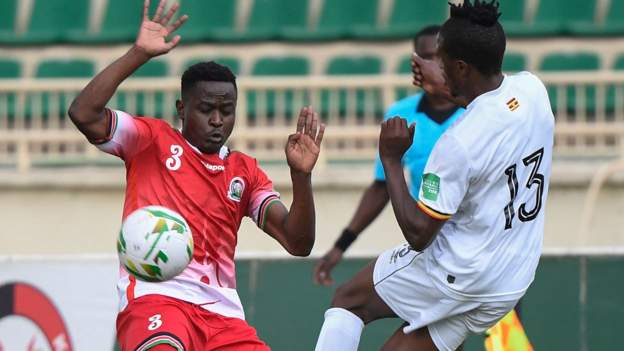Kenya’s sports minister intends to criminalise doping in athletics in an attempt to bring an end to a string of cases in the sport.
The east African country avoided a sanction by governing body World Athletics – despite having 55 athletes serving suspensions – last week after committing to spend $25m over the next five years to combat doping.
Sports minister Ababu Namwamba hopes to fast track amendments to legislation and crack down on doping the same way the government does with drugs.
“Right now, the Kenya Anti-Doping Act of 2016 is not, in my view, sufficiently loaded to deal with this challenge with the force required,” Namwamba told BBC Sport Africa.
“Our initial investigations are that you have a very complex underground syndicate [involved in doping in athletics]. It involves agents, coaches and doctors so it will need multiple instruments to be deployed to dismantle that syndicate.
“I believe we need to criminalise doping and elevate handling of doping substances to the same level [as] narcotics.
“So in the same way we deal with drug traffickers, we should deal similarly with those engaged in this practice.”
Kenya’s total of 55 athletes currently banned by the Athletics Integrity Unit (AIU) for a range of violations is the third most of any nationality behind Russia (102) and India (61).
A further eight Kenyans have been provisionally suspended and are awaiting the outcomes of their cases.
The World Anti-Doping Agency (Wada) does not believe doping should be made a criminal offence for athletes, with those sanctioned having a right of appeal to the Court of Arbitration for Sport.
Russia has been banned from competing as a nation in athletics since 2015 but World Athletics president Lord Coe told BBC Sport that Kenya was not going to face a similar fate, although the situation in the country was “very serious”.
“They weren’t going to be banned because unlike the Russian situation, which we’ve been dealing with for the last seven years, there is no obvious evidence that this is state-sponsored or state-secured,” Lord Coe said.
“The challenge in Kenya is difficult and chaotic.
“The one thing that I’m optimistic about is from the very highest level of government through all the stakeholders that you would want on board – like the Anti-Doping Agency of Kenya, Athletics Kenya, the athletes themselves – there is a real determination to try and resolve this.”
Previous failure
Previous attempts to criminalise doping in Kenya have been unsuccessful, with a motion by former member of parliament and ex-athlete Wesley Korir defeated in 2016.
The proposal to amend the rules of the Anti-Doping Agency of Kenya (ADAK) was rejected because it went against the Wada code of criminalisation.
However, Namwamba is confident he can succeed in changing laws and will “have a conversation” with Wada to make sure its code is not broken.
“I believe doctors, agents and coaches are primary offenders and athletes are secondary offenders,” he said.
“And so I believe we can work out something that would satisfy the concerns of Wada in terms of classification of offences and offenders and the action appropriate for each cluster of offenders.”


